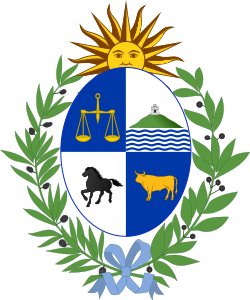Electoral system
The elections were held using a majority/minority system, in which the first and second parties in each constituency (based on departments) received a set number of seats, regardless of their vote shares. In Montevideo and constituencies with four seats, three-quarters of the seats were awarded to the first-placed party and one-quarter to the second-placed party. In constituencies with three seats, two were given to the first-placed party and one to the runner-up, as long as the second-placed party received at least 25% of the vote. [1] In Flores Department (which had two seats) the second-placed party had to receive at least 50% of the number of votes received by the first-placed party to win a seat.
Suffrage was limited to literate men. Voting was not secret, as voters had to sign their ballot paper. [2]
This page is based on this
Wikipedia article Text is available under the
CC BY-SA 4.0 license; additional terms may apply.
Images, videos and audio are available under their respective licenses.
